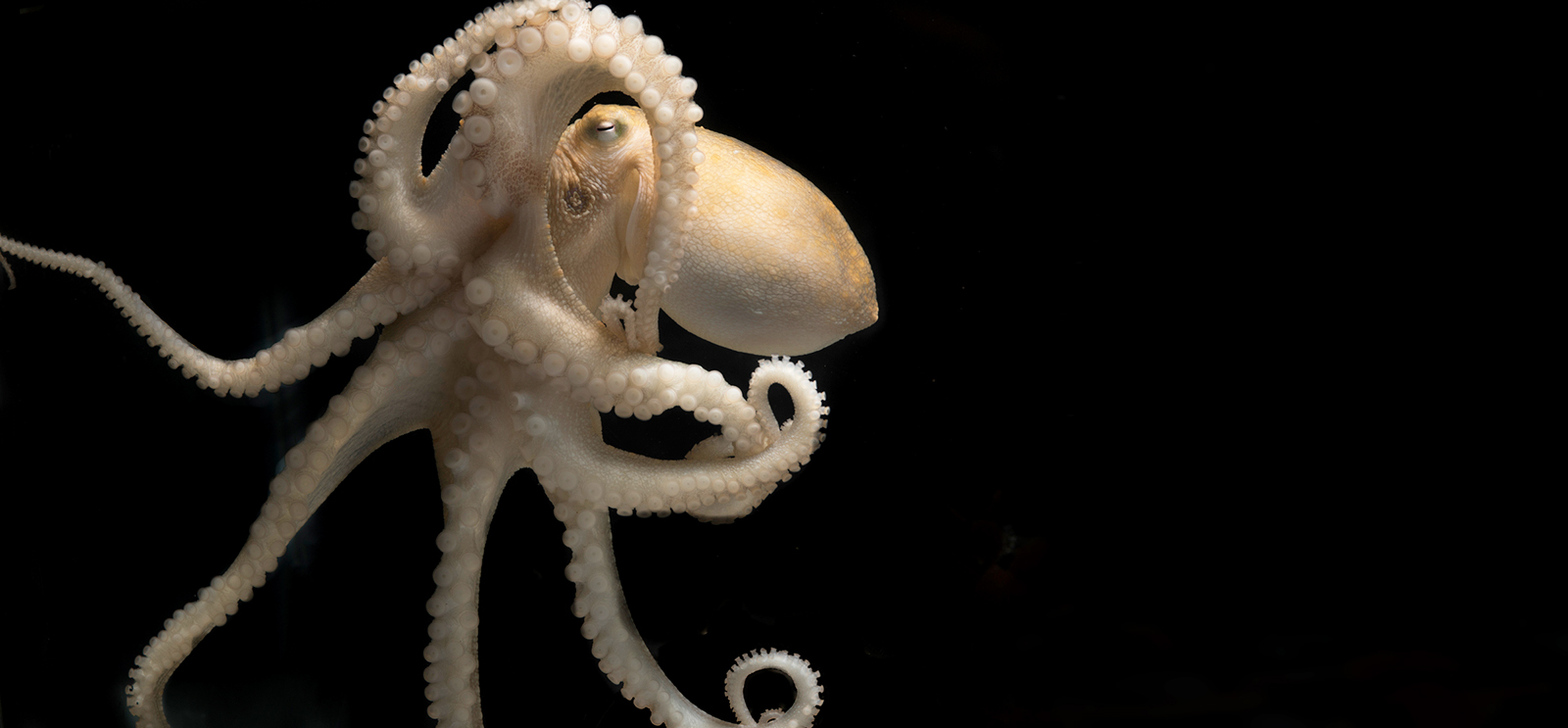
Octopuses, squid, and cuttlefish are the RNA editors in chief of the animal kingdom. (Photography by Tom Kleindinst/Marine Biological Laboratory)
The secrets of cephalopods; a celiac breakthrough; a double standard for female financial advisers; change your password.
Self-editing cephalopods
Coleoid cephalopods—octopuses, squid, and cuttlefish—display remarkably advanced behavior. Octopuses can open jars and escape from aquariums; squid communicate by changing the color of their skin. What makes these feats possible? New research from a team at the UChicago-affiliated Marine Biological Laboratory suggests a genetic process called RNA editing may be the secret. Normally RNA faithfully translates the instructions it receives from DNA into proteins. According to the study, published in the journal Cell on April 6, cephalopods tinker with their RNA during the translation process, allowing them to create an abundance of different proteins from the same DNA sequence. The researchers noted that RNA editing is common in the behaviorally sophisticated coleoids but not in their more primitive cousins, the nautiloid cephalopods—a hint that this unusual genetic behavior might be at the root of their intelligence.
Celiac culprit?
Reovirus is a childhood bug so mild you might not know you had it. But a new study published April 7 in Science—whose authors include Bana Jabri, professor of medicine, and postdoctoral scholars Romain Bouziat and Reinhard Hinterleitner—reveals that the otherwise innocuous virus could trigger the onset of celiac disease in certain genetically susceptible people. Roughly 35 percent of Americans carry genes predisposing them to celiac, yet only 1 percent develop it. The team wondered if viral infection could explain the discrepancy. To test the theory, they exposed mice to two different strains of reovirus. One strain, called T1L, triggered an aggressive immune response when the mice were fed a diet containing gluten. For the study’s second phase, the researchers turned to human patients. Celiac sufferers, they found, have many more antibodies against reovirus than their gluten-tolerant counterparts, suggesting they were once exposed to it. The study raises the possibility that a vaccine could be used to prevent the onset of celiac.
Double standard
When it comes to getting away with financial misconduct, it’s a man’s world, according to a March working paper coauthored by Chicago Booth associate professor of finance Gregor Matvos; visiting professor of finance Amit Seru; and the University of Minnesota’s Mark Egan, AM’12, PhD’15. Male brokers and investment advisers are three times more likely than their female counterparts to have at least one report of misconduct, but women are 20 percent more likely to get fired for the behavior—and 30 percent less likely to find a new job within a year. Women are especially likely to face harsh penalties if they work at a firm with a higher percentage of male owners and executives.
Strong P@ssw0rdS
Though we all know we shouldn’t use the name of our pet or our childhood address as a password, many of us don’t know what to use instead. Blase Ur, Neubauer Family Assistant Professor in Computer Science, and collaborators at Carnegie Mellon University developed a new tool that suggests better passwords. It made a difference in user behavior, the accompanying online study found. The tool uses an artificial neural network—a brain-like web of information—to learn and identify common password trends, and explains why certain passwords are strong or weak. (“johnboyer17,” for instance, flunks because it includes a common name and a year.) “Our new meter led users to create stronger passwords that were no harder to remember than passwords created without the feedback,” Ur said. Users can test the tool at cups.cs.cmu.edu/meter.
